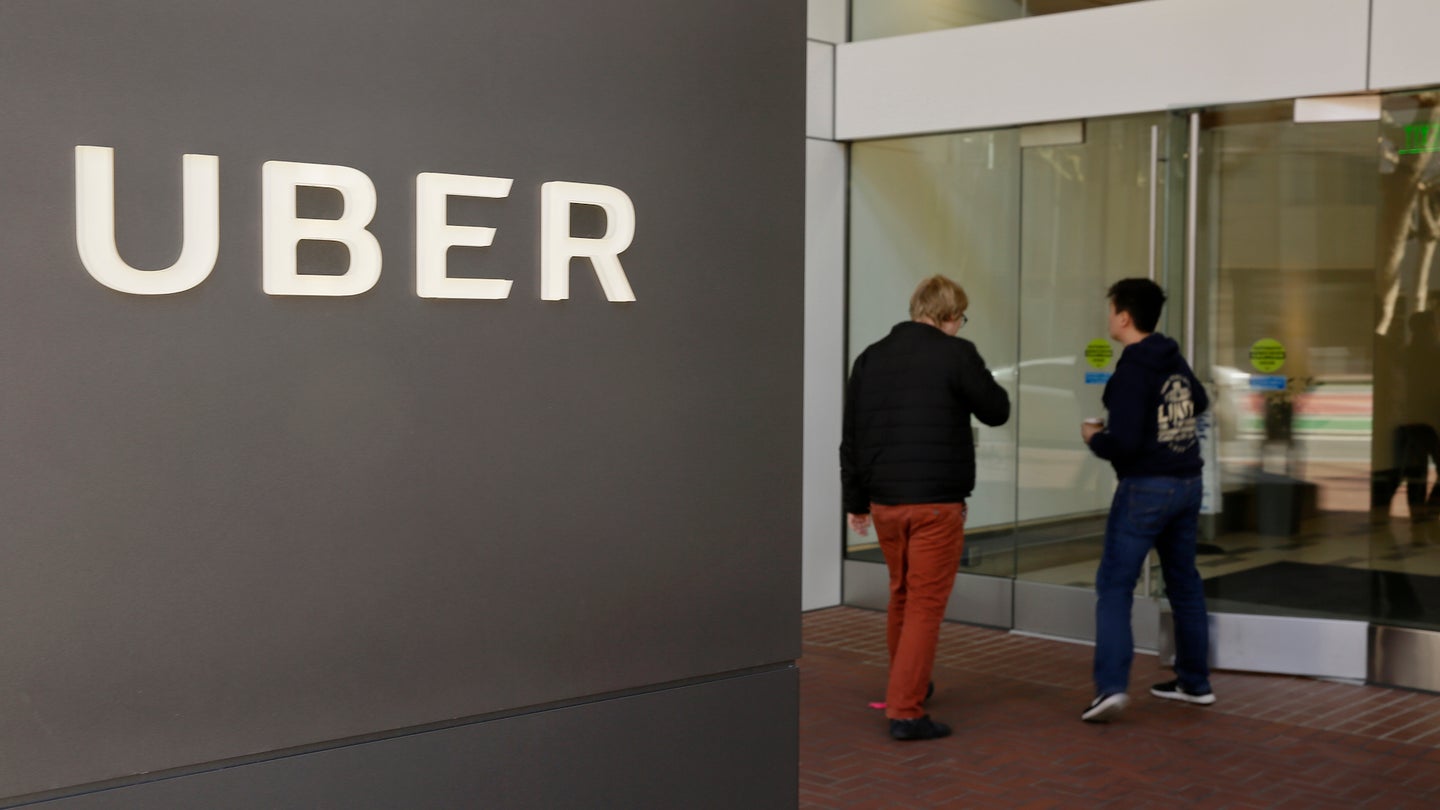Uber Will Launch Its Long-Awaited Initial Public Offering in April: Report
It will closely follow smaller rival Lyft.

Uber is planning to kick off its initial public offering (IPO) in April, reports Reuters. That would put the ride-hailing giant close behind smaller rival Lyft as both companies look to convert years of hype into investment dollars.
Citing anonymous sources familiar with the matter, Reuters said Uber will take the first steps toward launching its IPO next month. That will reportedly include issuing a require public disclosure, called an S-1, and launching an investor "roadshow" meant to drum up interest from Wall Street.
Uber is much larger than Lyft. Last year, it surpassed 10 billion rides globally, while Lyft only reached 1 billion rides. While Uber is a truly global company, Lyft only operates in the United States and Canada. Both companies filed paperwork for their IPOs in December, with Uber reportedly aiming for a valuation of $120 billion. Lyft reportedly targeted a $20 billion to $25 billion valuation.
But Lyft has used recent Uber scandals to punch above its weight, portraying itself as a morally upright alternative while Uber dealt with various issues, from sexual harassment allegations to a massive data breach. Lyft was also quicker to embrace bike sharing and scooter sharing, services that are now expected to be a major part of both companies' futures.
Each may benefit from Lyft going public first, claims Reuters. Lyft will be able to take advantage of pent-up investor demand and won't have to compete with Uber for attention. A successful Lyft IPO could generate enthusiasm for Uber's IPO, potentially pushing the larger company's valuation higher.
However, both Uber and Lyft will have to convince investors that ride-hailing is a solid long-term prospect. Both companies posted losses in 2018, despite relying on a business model that shifts most costs to their workers. Uber and Lyft drivers are freelance contractors, meaning companies don't have to pay costly benefits. Drivers also provide their own cars and are responsible for all running costs.
That casts doubt on Uber and Lyft's ability to turn a profit long term. The two companies are planning to launch large fleets of self-driving cars. That will require significant investments to develop the technology, and Uber and Lyft will have to purchase and operate their own vehicles for the first time. It will be a much more expensive route than relying on freelance human drivers.
